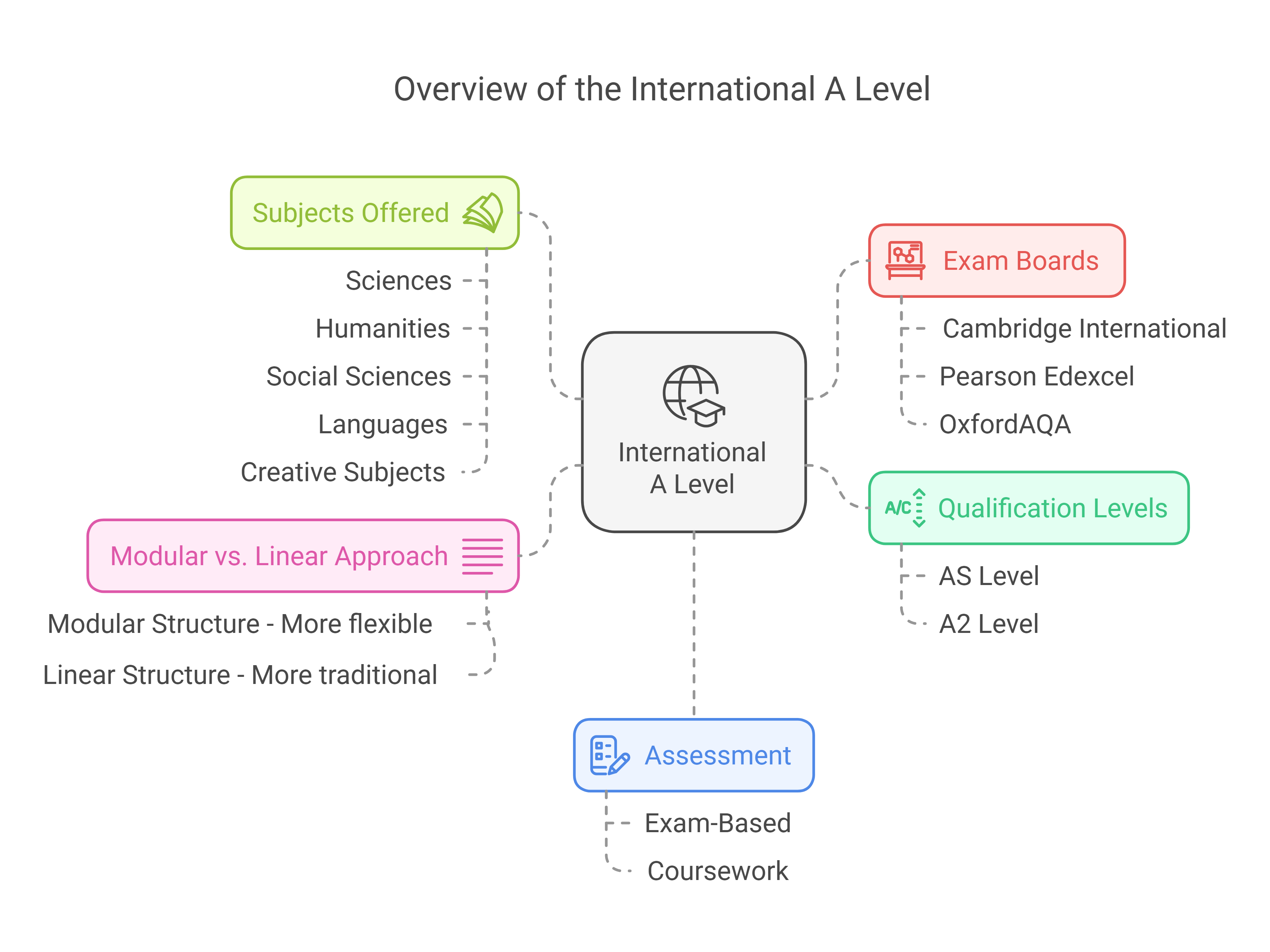Your basket is currently empty!

The International A Level Examination is an internationally recognized qualification designed to provide students with a strong academic foundation for university studies, professional qualifications, or employment. It is widely accepted by universities and employers around the world as equivalent to the standard A Level qualification offered in the UK.
A breakdown of its structure and aims:
Structure of the International A Level
- Qualification Levels:
- AS Level (Advanced Subsidiary):
- Typically completed in the first year of study.
- It represents the first half of the full A Level.
- Can be taken as a standalone qualification or as part of the full A Level.
- A2 Level:
- Represents the second half of the full A Level.
- Builds on the knowledge and skills developed at AS Level.
- Together with AS, it forms the complete A Level qualification.
- AS Level (Advanced Subsidiary):
- Subjects Offered:
- A wide variety of subjects are available, including sciences (e.g., Biology, Chemistry, Physics), mathematics, humanities (e.g., History, Geography, English Literature), social sciences (e.g., Psychology, Economics), languages, and creative subjects (e.g., Art, Music).
- Students typically study 3-4 subjects depending on their academic goals.
- Modular vs. Linear Approach:
- Many International A Level programs use a modular structure, allowing students to sit exams for specific units at different times. This provides flexibility and allows students to retake individual units if needed.
- In contrast, UK A Levels have moved to a more linear format, with all exams taken at the end of the course.
- Assessment:
- Predominantly exam-based, with papers testing knowledge, critical thinking, and problem-solving skills.
- Some subjects may include coursework or practical assessments (e.g., science practicals, art portfolios).
- Exam Boards:
- Offered by various boards, including Cambridge International (CIE), Pearson Edexcel, and OxfordAQA.
- Each board has specific syllabus requirements and assessment criteria, but all adhere to rigorous academic standards.
Aims of the International A Level
- University Preparation:
- Equip students with the academic knowledge and skills required for higher education.
- Emphasize critical thinking, problem-solving, and independent learning.
- Global Recognition:
- Provide a qualification that is accepted by universities and employers worldwide.
- Prepare students for global academic and professional opportunities.
- Flexibility:
- Allow students to tailor their education to their interests and career aspirations by offering a broad range of subjects and flexible scheduling.
- Depth and Rigor:
- Develop a deep understanding of subjects through challenging curricula and assessments.
- Encourage mastery of subject-specific content alongside transferable skills.
- Cultural Relevance:
- Adapt curricula to suit diverse international contexts while maintaining high academic standards.
- Pathways to Specialization:
- Offer a strong foundation in chosen subjects, enabling students to specialize in areas aligned with their future goals (e.g., sciences for medicine or engineering, humanities for law or arts).
Key Benefits of the International A Level
- Flexibility: Modular exams allow students to manage their learning and assessments.
- Global Opportunities: Accepted in countries like the UK, USA, Canada, Australia, and many others.
- Skill Development: Fosters independent study, analytical thinking, and time management, which are vital for university success.
The International A Level is an excellent choice for students seeking a high-quality education with global recognition, especially those in international schools or living in countries without access to standard UK A Levels.
